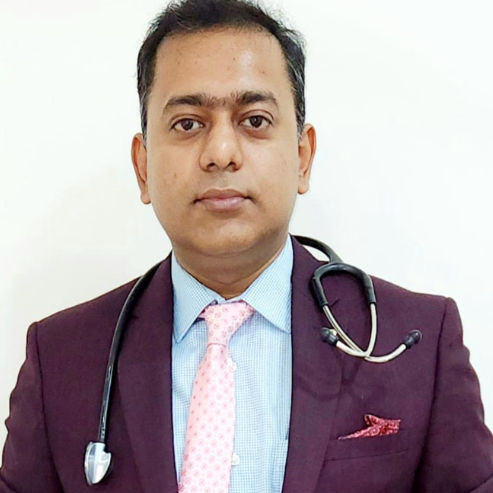Cancer Symptoms Common in Women
Recognize common cancer symptoms in women, including changes in breasts, skin, digestion, weight, and persistent fatigue. Early detection is key—learn what signs to look for and when to consult a doctor for prompt screening.

Written by Dr. J T Hema Pratima
Reviewed by Dr. Rohinipriyanka Pondugula MBBS
Last updated on 7th Aug, 2025

Cancer is a serious health condition that affects millions of people worldwide, including women. While some cancers are more common in women, early detection can significantly improve treatment outcomes. Knowing the warning signs can help you take timely action and seek medical advice.
In this article, we’ll discuss the most common cancer symptoms in women, what causes them, and when to see a doctor. We’ll also share some tips on reducing your risk and maintaining good health.
Common Cancer Symptoms in Women
Women may experience different symptoms depending on the type of cancer. Here are some of the most common signs to watch for:
1. Breast Changes
A new lump or thickening in the breast or underarm.
Changes in breast size, shape, or skin texture (dimpling, redness, or puckering).
Nipple discharge (other than breast milk) or inversion.
Persistent breast pain.
2. Abnormal Vaginal Bleeding
Bleeding between periods, after menopause, or after sex.
Heavier or longer menstrual cycles than usual.
3. Unexplained Weight Loss
Losing weight without trying (10+ pounds in a short time).
4. Persistent Fatigue
Feeling extremely tired even after resting.
5. Changes in Bowel or Bladder Habits
Blood in urine or stool.
Diarrhea, constipation, or changes in stool consistency lasting weeks.
Frequent urination or pain while urinating.
6. Skin Changes
New moles or changes in existing moles (size, color, shape).
Sores that don’t heal.
Yellowing of the skin or eyes (jaundice).
7. Persistent Cough or Hoarseness
A cough that doesn’t go away or worsens.
Coughing up blood.
8. Difficulty Swallowing or Indigestion
Trouble swallowing food.
Chronic heartburn or stomach pain.
9. Pelvic Pain or Bloating
Ongoing bloating, discomfort, or feeling full quickly after eating.
10. Swelling or Lumps in the Body
Unusual lumps in the neck, armpit, groin, or elsewhere.
Consult Top Oncologist For personalised Tips
What Causes Cancer in Women?
Cancer occurs when abnormal cells grow uncontrollably. While the exact cause varies, certain risk factors increase the likelihood of developing cancer:
Age – Risk increases with age.
Family History – Some cancers (like breast and ovarian) run in families.
Hormonal Factors – Early menstruation, late menopause, or hormone therapy can affect risk.
Lifestyle Choices – Smoking, alcohol, poor diet, and lack of exercise contribute.
Infections – HPV (cervical cancer), Hepatitis B/C (liver cancer).
Environmental Factors – Exposure to radiation or harmful chemicals.
When Should You See a Doctor?
If you notice any persistent or unusual symptoms, don’t ignore them. Early detection saves lives. Consult a doctor if:
A symptom lasts more than 23 weeks.
You have unexplained pain, bleeding, or weight loss.
You notice a new lump or skin changes.
Tip: Regular screenings (like mammograms and Pap smears) help detect cancer early, even before symptoms appear.
How Can You Lower Your Risk?
While not all cancers can be prevented, healthy habits can reduce your risk:
Eat a Balanced Diet – Include fruits, vegetables, whole grains, and lean proteins.
Stay Active – Aim for 30 minutes of exercise most days.
Avoid Smoking & Limit Alcohol – Both increase cancer risk.
Protect Your Skin – Use sunscreen and avoid excessive sun exposure.
Get Vaccinated – HPV and Hepatitis B vaccines can prevent some cancers.
Regular Check ups – Annual health screenings are crucial.
Next Steps: When to Seek Help
If you or a loved one experience any concerning symptoms, consult a doctor immediately. Early diagnosis leads to better treatment outcomes.
Apollo 24|7 makes it easy to book a consultation or schedule a cancer screening test from home. You can speak to an expert, get tested, and receive guidance—all in one place.
Your health matters! Don’t delay—take action today.
Final Thoughts
Cancer can be frightening, but being aware of symptoms and taking preventive steps can make a big difference. Listen to your body, stay informed, and seek medical advice if something feels off. With early detection and proper care, many cancers can be treated successfully.
Stay healthy, stay vigilant!
Consult Top Oncologist For personalised Tips
Consult Top Oncologist For personalised Tips

Dr Sunita Samleti
Oncologist
18 Years • M.D. (Pathology)- TN Medical College, Mumbai University, Mumbai, Mar 2005 M.B.B.S. Grant Medical College, Mumbai University, Mumbai, Oct 1999
Chinagadila
Apollo Hospitals Health City Unit, Chinagadila

Dr Gowshikk Rajkumar
Oncologist
10 Years • MBBS, DMRT, DNB in Radiation oncology
Bengaluru
Apollo Clinic, JP nagar, Bengaluru

Dr. Sanchayan Mandal
Oncologist
17 Years • MBBS, DNB Raditherapy, DrNB Medical Oncology
East Midnapore
VIVEKANANDA SEBA SADAN, East Midnapore

Dr.sanchayan Mandal
Oncologist
17 Years • MBBS, DrNB( MEDICAL ONCOLOGY), DNB (RADIOTHERAPY),ECMO. PDCR. ASCO
Kolkata
Dr. Sanchayan Mandal Oncology Clinic, Kolkata

Dr. Gopal Kumar
Head, Neck and Thyroid Cancer Surgeon
15 Years • MBBS, MS , FARHNS ( Seoul, South Korea ), FGOLF ( MSKCC, New York )
Delhi
Apollo Hospitals Indraprastha, Delhi
(25+ Patients)
